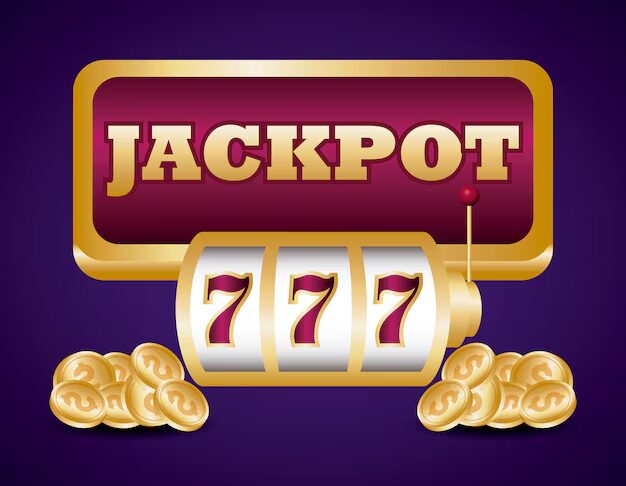Slot gaming is one of the most popular forms of gambling, both in traditional casinos and online platforms. Its appeal lies in its simplicity, immersive themes, and the potential for big payouts.
Yet, many players wonder if strategies can influence their success in what is fundamentally a game of chance.
This article explores the science, mechanics, and psychology behind slot gaming to determine whether strategies can tip the scales in favor of the player.
Understanding Slot Mechanics

Random Number Generators (RNGs)
At the heart of every slot machine, whether physical or digital, lies a Random Number Generator (RNG). RNGs ensure that every spin is independent and random, making it impossible to predict outcomes based on past results. Key aspects of RNGs include:
- Unpredictability ─ The outcome of each spin is generated at the moment the player initiates it, unaffected by previous spins.
- Fairness ─ Certified RNGs ensure that slot online games operate within the stated parameters, such as RTP (Return to Player).
Return to Player (RTP) and House Edge
The RTP is a theoretical percentage that indicates how much a slot game pays back to players over a long period. For instance, a game with a 95% RTP will return $95 for every $100 wagered, on average. However:
- The house edge ─ The remaining percentage (e.g., 5% for a 95% RTP game) represents the casino’s built-in advantage.
- Short-term variance ─ Individual gaming sessions often deviate from the theoretical RTP due to variance, resulting in streaks of wins or losses.
Common Slot Gaming Strategies
Bankroll Management
One of the most effective strategies in slot gaming involves managing your bankroll. Key tactics include:
- Setting limits ─ Establishing loss limits and sticking to them ensures responsible gambling.
- Bet sizing ─ Adjusting bet sizes based on your bankroll can extend gameplay and reduce the risk of running out of funds too quickly.
Volatility Selection
Slots come in different levels of volatility:
- Low-volatility slots ─ Offer frequent but smaller wins, suitable for players seeking steady returns.
- High-volatility slots ─ Provide larger payouts but with less frequency, appealing to risk-takers.
Choosing a game that matches your risk tolerance and gaming goals is a strategic way to enjoy slots.
Timing and Session Length
Some players believe in playing during specific times or limiting session lengths to avoid chasing losses. While this doesn’t affect the RNG, it can help maintain discipline and reduce impulsive behavior.
The Illusion of Control and Player Psychology

The Gambler’s Fallacy
A common misconception in slot gaming is the gambler’s fallacy, the belief that past outcomes influence future results. For example:
- Believing that a machine is “due” for a win after a losing streak.
- Assuming that a recent jackpot means the machine won’t pay out again soon.
In reality, RNGs ensure that each spin is independent, making such assumptions baseless.
Near-Miss Effect
Slot machines often display near misses, where the reels align symbols close to a winning combination. This design:
- Encourages continued play ─ Players perceive near misses as being close to success, motivating them to keep spinning.
- Triggers dopamine release ─ The brain’s reward system reacts to near misses similarly to actual wins, reinforcing the behavior.
Sound and Visual Stimulation
Dynamic visuals and celebratory sounds, even for small wins, create a sense of accomplishment. These psychological cues are designed to keep players engaged and optimistic.
The Science of Slot Gaming Dynamics
Probabilities and Payouts
Each slot machine is programmed with probabilities for different outcomes:
- Symbol combinations ─ The frequency of high-paying symbols appearing on the reels is carefully calibrated.
- Payout tiers ─ Games are designed to balance smaller, frequent payouts with the allure of rare, large jackpots.
Understanding these probabilities can help players set realistic expectations, even if it doesn’t alter the game’s randomness.
Progressive Jackpots and Contribution
A small portion of each bet contributes to a growing prize pool in progressive jackpot slots. Strategic considerations include:
- High jackpots ─ Playing when the jackpot has reached significant levels may offer better-perceived value.
- Betting requirements ─ Many progressive slots require maximum bets to qualify for the jackpot, making it essential to understand the rules.
Do Strategies Work in Slot Gaming?

The Limitations of Strategies
Due to the randomness ensured by RNGs, strategies cannot directly influence the outcome of a slot game. However:
- Bankroll management ─ Helps players maximize their time and enjoyment while minimizing losses.
- Game selection ─ Choosing games with higher RTPs or appropriate volatility can improve the overall experience.
Skill vs. Luck
Unlike skill-based games such as poker or blackjack, slot gaming relies entirely on luck. While players can adopt strategies to manage their play, they cannot alter the underlying mechanics or probabilities.
Psychological Benefits of Strategies
Even if strategies don’t affect outcomes, they can provide psychological benefits:
- Sense of control ─ Adopting a strategy can make players feel more in control, reducing anxiety.
- Enhanced enjoyment ─ Setting goals and managing gameplay can make the experience more rewarding and less stressful.
Conclusion
While strategies cannot influence the randomness of slot outcomes, they can enhance the gaming experience by promoting responsible play and informed decision-making. Players should focus on enjoyment, manage their bankroll effectively, and choose games that align with their preferences.
Understanding the subtle science behind slot gaming dynamics can help players appreciate the balance of chance, psychology, and entertainment that defines this popular pastime.




